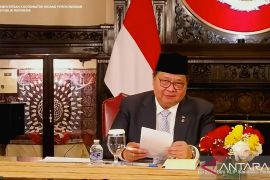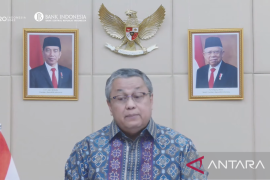"The ojek service has developed fast. It has grown at a phenomenal pace from a stand-based service to an online application-based motorcycle taxi service," Tulus Abadi, the executive chairman of the Indonesian Consumer Institute Foundation (YLKI), stated here on Friday.
Therefore, he believes that the ban would only be akin to a "toothless tiger." Although the service is banned, it will continue to operate because sanctions and law enforcement against it will be weak as the existence of ojek is protected by the legal apparatuses themselves.
Hence, the transportation minister cannot abruptly impose a ban on the operations of ojek if the government is not yet able to offer a proper public transportation system. However, according to Abadi, the ban, in normative terms, is correct, and the move should be lauded.
"Based on regulations, motorcycles do not meet the technical specifications to be used as a mode of public transport and do not meet the basic safety standards. In normative terms, the ministers ban is right," the YLKI chairman explained.
However, he said that security and safety of the other existing public transportation modes could now also not be guaranteed as was apparent by the recent accident that befell a Metromini bus, which was hit be a commuter train in Jakarta.
"Moreover, Jakarta is increasingly reeling under the impact of traffic jams," he said.
Therefore, the YLKI has urged the Ministry of Transportation and the regional government to soon improve the public transportation service," Tulus noted.
He said that as a form of public service, providing public transportation is the responsibility of the government, and it should not issue a ban if it cannot provide a solution to the transportation problem.
Earlier, the Ministry of Transportation had issued a letter of notification No. UM.302/1/21/Phb/2015 on the operation of ojek, saying it was not in line with Law Number 74 of 2009 on Traffic and Transportation and Government Regulation Number 74 of 2014 on Transportation.
The letter was dated November 19, 2015, and had been signed by the transportation minister, the copies of which were also sent to the Traffic Police Corps of the National Police, governors, and the regional police across the country.
Land Transportation Director General Djoko Sasono remarked that following the issuance of the letter, the online-based ojek were no longer allowed to operate.
"The ojek are banned from operating as they are not in line with regulations," he added.(*)
Editor: Heru Purwanto
Copyright © ANTARA 2015










